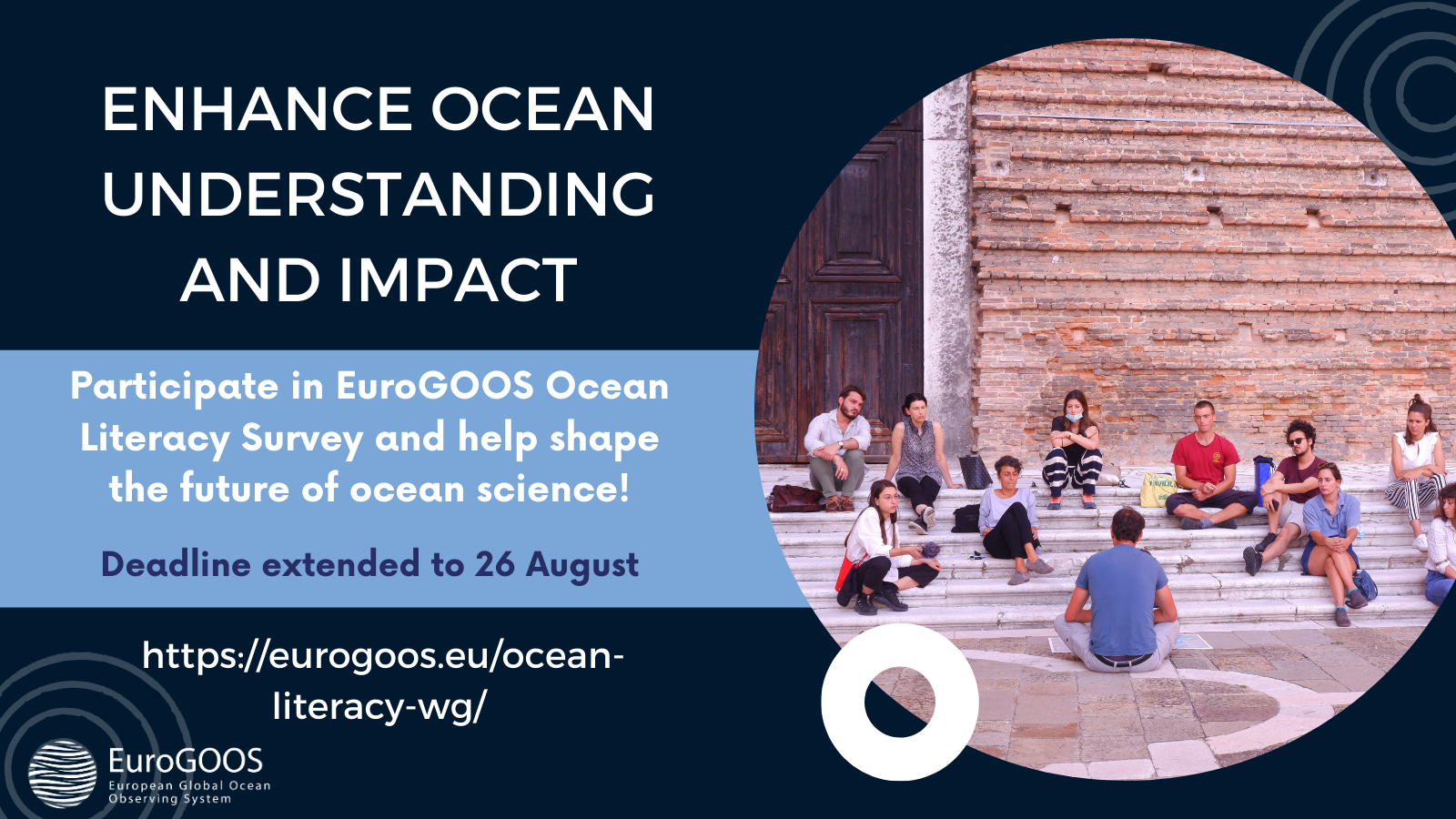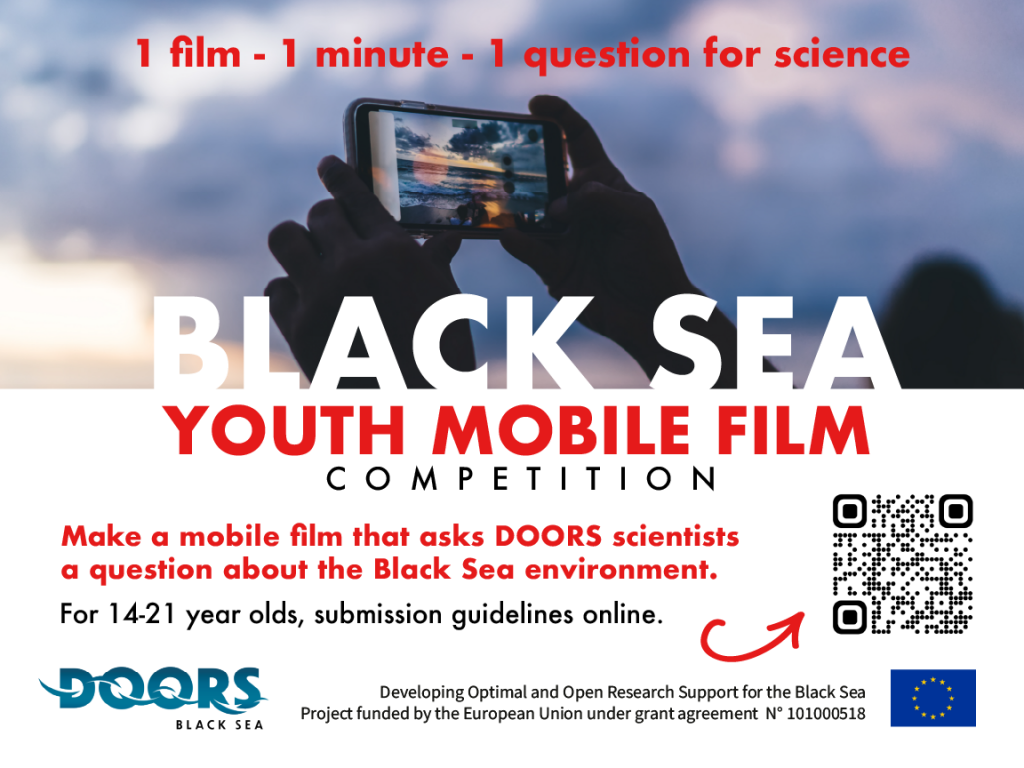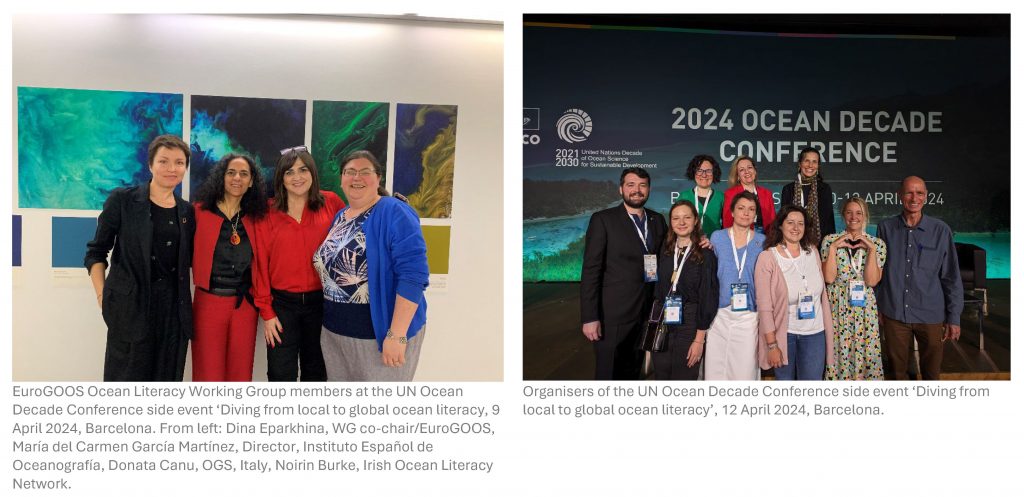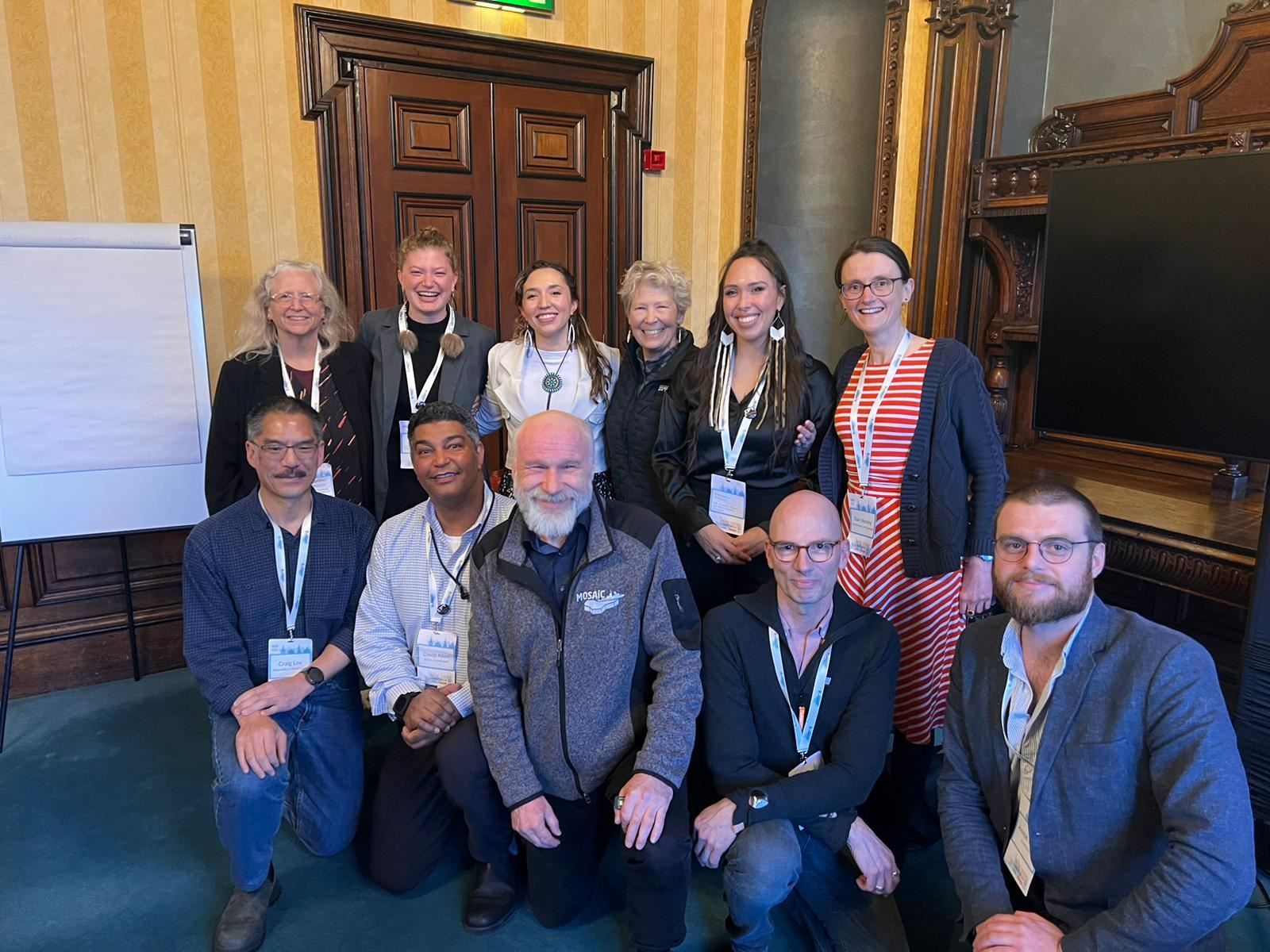Save the date! NOOS Annual Meeting 2025
Please find below the link to the registration form for the upcoming NOOS Annual Conference in Dublin:
EuroGOOS survey on Ocean Literacy in ocean observing and forecasting (Deadline extended)
Enhance Ocean Understanding and Impact – Join the EuroGOOS Ocean Literacy Survey!
Are you passionate about the ocean and its vital role in our world? We need your insights!
EuroGOOS invites you to participate in our Ocean Literacy Activities Survey, live until 26 August 2024. Your input will help us empower Ocean Literacy, boost synergies, and develop impactful activities across Europe.
Why Participate?
- Contribute to Science: Your feedback will inform the EuroGOOS Ocean Literacy Working Group and the Ocean Decade project Scientists for Ocean Literacy.
- Shape the Future: Help us understand the current landscape of Ocean Literacy activities and promote their relevance.
- Be Heard: All responses are confidential and used for internal analysis to drive future initiatives.
Who Should Participate?
- Marine researchers;
- Meteorological and hydrographic agencies;
- Educational institutions;
- Environmental organizations;
- Anyone involved in Ocean Literacy activities since January 2022.
How to Participate?
- Download the survey and prepare your responses:
- Submit your responses via the online form.
- For inquiries, contact Dina Eparkhina at dina.eparkhina AT eurogoos.eu.
Your participation will take approximately 15 minutes, but its impact will resonate for years.
Help us enhance ocean understanding and forecasting for a sustainable future!
The post EuroGOOS survey on Ocean Literacy in ocean observing and forecasting (Deadline extended) appeared first on EuroGOOS.
New publication in Frontiers: The European Ocean Observing System, urgent gaps and recommendations
New publication from the European Ocean Observing Community with urgent gaps and recommendations to implement during the UN Ocean Decade
The European Ocean Observing Community (EOOC) contributes to observing, analyzing, and forecasting marine phenomena across coastal and open-ocean settings, spanning shallow to deep ocean layers. With the world undergoing rapid changes, addressing gaps in ocean observation is crucial for supporting climate change mitigation and adaptation strategies, marine resource management, and ecosystem resilience.
Key Findings
-
Temperature Rise and Species Distribution: The study highlights a significant shift in the distribution of marine species, with many migrating towards cooler waters. This shift not only affects the species themselves but also has cascading effects on the ecosystems they leave behind and those they migrate into.
-
Ocean Acidification: Increased CO2 levels are leading to more acidic oceans, which severely impacts calcifying organisms such as corals and shellfish. The decline in these species affects the broader food web, including species that rely on them for food or habitat.
-
Impact on Fisheries: The research underscores the challenges faced by global fisheries. As species migrate and populations fluctuate, traditional fishing grounds are becoming less reliable, threatening food security and livelihoods, especially in coastal communities.
-
Coral Reefs in Peril: Coral reefs, which are biodiversity hotspots, are particularly vulnerable to both warming waters and acidification. The study details the decline in coral health and its implications for the myriad species that depend on reefs for survival.
-
Ecosystem Function Disruption: The alteration in species composition and distribution affects ecosystem functions, such as nutrient cycling, primary production, and carbon sequestration. This disruption could have long-term impacts on ocean health and its ability to support life.
Read the full article here.
This article is a product of the Task 1.5 of the EuroSea project, entitled “Gap analysis of European Ocean Observing and Forecasting System”. This task was led by GEOMAR Helmholtz-Zentrum für Ozeanforschung Kiel in partnership with UNESCO Ocean.
The post New publication in Frontiers: The European Ocean Observing System, urgent gaps and recommendations appeared first on EuroGOOS.
Youth Mobile Film Competition for Black Sea
The DOORS Black Sea project has launched a mobile film competition inviting young people to ask DOORS scientists questions. Michael Rea, EuroGOOS, GeoEcoMar, and other DOORS partners have co-developed this call.
They say that 60 seconds can change the world. Young people are invited to submit a 1-minute smartphone produced film that asks DOORS scientists a question about the Black Sea.
As a project, DOORS recognises how modern smartphones have championed the democratisation of both access to marine knowledge and to filmmaking. We are calling on citizens to share their concerns and experiences in a creative way and encourage others to learn more!
We are looking for entries from ages 14-21 that encourage us all to think about our actions as humans and what we can do to look after the Black Sea. Films will be evaluated based on simple criteria and can be made in any language (we will add English subtitles). Submissions can be made by either an individual or a group working together.
DOORS has established a large international audience and network and all submissions will gain a great deal of exposure, using the hashtag #AskBlackSeaScientist. A selection of the best films will be showcased on our website and at international conferences and events. The film with the most likes/votes will have their question answered by a selection of DOORS experts in response. The winners of the best film will also receive a very special prize from the DOORS project. The deadline to enter is 31 October 2024 – International Black Sea Action Day.
All details of the call are available here.
The post Youth Mobile Film Competition for Black Sea appeared first on EuroGOOS.
Open position at SOCIB: Postdoc Scientist Ocean Modeler for FOCCUS Project
The Modelling and Forecasting Facility of our member SOCIB is looking for a Postdoc Scientist Ocean Modeler with experience in multi-platform observing data assimilation. Particularly, the candidate will be responsible for improving WMOP model forecast skills through multi-platform data assimilation, including new data sources (high-resolution altimetry, gliders and HF radar) in the Western Mediterranean Sea region. The WMOP-WesternMediterranean OPerational modelling Systemhigh resolution ocean forecasting system is a regional configuration of ROMS with EnOI-like sequential data assimilation scheme. Model improvements are expected in the forecasting capability of mesoscale dynamics in coastal areas, on surface currents, sea level anomaly, temperature and salinity fields. The processing scripts developed in this work will be made available on collaborative coding software websites distributed within and outside the project using dedicated open repositories (e.g. GitHub, GitLab).
The successful candidate will work within the Modelling and Forecasting Facility, with both close interactions with the rest of SOCIB facilities and international collaborations as part of the FOCCUS project.
Click here for more information.
The post Open position at SOCIB: Postdoc Scientist Ocean Modeler for FOCCUS Project appeared first on EuroGOOS.
Call for Abstracts – 1st Stakeholder Meeting of CIPM-STG-CENV
The CIPM Sectorial Task Group on Climate Change and Environment has been established to provide a global focal point for metrology activities related to climate change and environment.
Abstracts for presentations/posters are invited that address progress on recommendations or new initiatives since the BIPM-WMO Workshop on Metrology for Climate Action (2022), and fall into one of the following themes:
- Metrology in support of the physical science basis of climate change and climate observations
- Metrology as an integral component of operational systems to estimate greenhouse gas emissions based on accurate measurements and analyses.
Recommendations of the BIPM-WMO 2022 workshop are documented in the workshop report.
Submit your abstract and read more information about the call here.
The post Call for Abstracts – 1st Stakeholder Meeting of CIPM-STG-CENV appeared first on EuroGOOS.
EuroGOOS survey on Ocean Literacy in ocean observing and forecasting
 Enhance Ocean Understanding and Impact – Join the EuroGOOS Ocean Literacy Survey!
Enhance Ocean Understanding and Impact – Join the EuroGOOS Ocean Literacy Survey! 
Are you passionate about the ocean and its vital role in our world? We need your insights!
EuroGOOS invites you to participate in our Ocean Literacy Activities Survey, live until 31 July 2024. Your input will help us empower Ocean Literacy, boost synergies, and develop impactful activities across Europe.
Why Participate?
- Contribute to Science: Your feedback will inform the EuroGOOS Ocean Literacy Working Group and the Ocean Decade project Scientists for Ocean Literacy.
- Shape the Future: Help us understand the current landscape of Ocean Literacy activities and promote their relevance.
- Be Heard: All responses are confidential and used for internal analysis to drive future initiatives.
Who Should Participate?
- Marine researchers;
- Meteorological and hydrographic agencies;
- Educational institutions;
- Environmental organizations;
- Anyone involved in Ocean Literacy activities since January 2022.
How to Participate?
- Download the survey and prepare your responses:
.well.c2a3 .btn {
padding: 11px 30px;
font-size: 11pt;
}.well.c2a3 .media-body {
font-size: 11pt;
margin-left: -15px;
}.well.c2a3 .wpdm_icon {
height: 20px;
width: auto;
min-width: 28px;
max-width: 28px;
}.well.c2a3 {
padding: 0;
background: transparent;
}
.well.c2a3 a {
color: #7BA6D8 !important;
}.text-muted.fsize {
color: #7BA6D8 !important;
margin-left: 5px;
} - Submit your responses via the online form.
- For inquiries, contact Dina Eparkhina at dina.eparkhina AT eurogoos.eu.
Your participation will take approximately 15 minutes, but its impact will resonate for years.
Help us enhance ocean understanding and forecasting for a sustainable future!
The post EuroGOOS survey on Ocean Literacy in ocean observing and forecasting appeared first on EuroGOOS.
Enhancing public impact: EuroGOOS survey on Ocean Literacy in ocean observing and forecasting
On 30 May, on the occasion of the European Maritime Day Conference, our Ocean Literacy Working Group is releasing a long-awaited survey on public engagement activities in oceanography.
From visualisation of ocean data, to developing teaching materials, sharing scientific knowledge, and citizen science – ocean observing and forecasting activities are fondamental and powerful resources to spread Ocean Literacy. Furthermore, by engaging society in their work, oceanographic research agencies augment the relevance of their publicly-funded activities, attract new talents, and bring in new generation.
Access the EuroGOOS Ocean Literacy Survey now!
The post Enhancing public impact: EuroGOOS survey on Ocean Literacy in ocean observing and forecasting appeared first on EuroGOOS.
EuroGOOS Ocean Literacy WG & Scientists for Ocean Literacy project at the UN Ocean Decade Conference
The UN Ocean Decade Conference marked a significant milestone in advancing global understanding and engagement with our ocean. The side event, titled “Diving from Local to Global Ocean Literacy: Exploring, Sharing, and Developing Successful Practices to Know, Feel and Join the Living Ocean,” was held on 9 April at the Institut de Ciències del Mar – CSIC.
Co-organized by EuroGOOS, the event brought together experts and enthusiasts to discuss best practices and barriers in mainstreaming ocean literacy across various sectors and lifestyles. The interactive session featured examples from business, sports, activism, and oceanography, fostering a comprehensive dialogue with the audience on integrating ocean literacy into everyday life.
EuroGOOS has been at the forefront of promoting ocean literacy through our dedicated working group, which now includes 25 organizations with both national and international scopes. Our activities under the Ocean Decade, including #Scientists4OceanLiteracy project, a policy brief on Ocean Literacy in Oceanographic Agencies, and an online repository of ocean literacy resources, have been instrumental in spreading ocean education and awareness.
At the event, a dedicated session addressed Ocean Literacy in Science, featuring three experts from the EuroGOOS Ocean Literacy Working Group. The panel delved into the concept of “ocean intelligence” and explored the diverse ways of acquiring and disseminating marine knowledge. This panel was one of four, each featuring a broad spectrum of disciplines and occupations contributing to ocean literacy initiatives.
The event was a resounding success, highlighting the importance of ocean literacy in shaping a sustainable future.
The post EuroGOOS Ocean Literacy WG & Scientists for Ocean Literacy project at the UN Ocean Decade Conference appeared first on EuroGOOS.
Co-designing a pan-Arctic ocean observing alliance
EuroGOOS was a co-organiser of the sessions ‘Co-designing a pan-Arctic ocean observing alliance’ at the Arctic Observing Summit (AOS) 2024, in Edinburgh during Arctic Science Summit Week (ASSW). The session featured a summary of the identified need for an Arctic alliance for ocean observing (such as a GOOS Regional Alliance) and a timeline of efforts to establish one over several years. This was followed by a panel on ‘Arctic ocean observing: global context and large-scale regional initiatives’, featuring existing ocean observing networks active in the Arctic (including Arctic ROOS), and an Indigenous-led panel ‘Ocean observing: The rights, needs, and contributions of Arctic communities’. Key issues discussed included the need to connect the relevance of global-scale observing programmes to the needs of Arctic communities at local and regional scales, the great cultural importance of marine environments to Arctic communities alongside their role in subsistence and livelihoods, and the proper integration of Indigenous knowledge alongside western scientific knowledge systems. Emphasis was made on the rights of Indigenous communities to control activities, including ocean observing, in community’s region, and the need for improved training of researchers on how to appropriately engage and build trust with communities in the Arctic.
Several recommendations and actions from the meeting will be taken up but the international task team working to advance a process towards a pan-Arctic ocean observing alliance. The task team has also received formal endorsement from Sustaining Arctic Observing Systems (SAON), and remains open to further participants.
The post Co-designing a pan-Arctic ocean observing alliance appeared first on EuroGOOS.
See more in our News Archive























